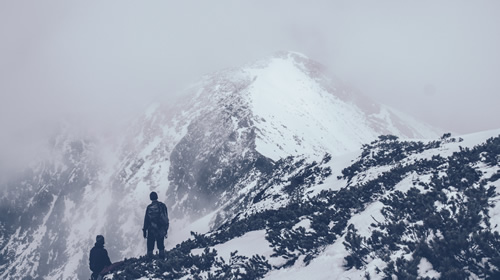The Importance of Travel Insurance
Abroad
Don’t Leave Home Without
It
By Caroline Nye

|
|
You never know when and if you might need health
insurance while traveling abroad.
|
Several years ago, I went to visit some
friends in the U.S. in the Cascade Mountains of Washington.
On arrival, I realized that I had forgotten to buy travel
insurance. Feeling young, fit, and reckless, I decided that
it would not matter as the trip was only to be two weeks
long. What could possibly go wrong in such a short space
of time? As if to tempt fate, I decided to join my friends
snowboarding for a day. I was slightly more nervous given
the knowledge that I had no insurance, but my friends persuaded
me little could go wrong since I was a beginner and wouldn’t
be moving fast enough to have an accident. Unfortunately,
due to some bad amateur coaching, I ended up being taken
off of the slopes on a stretcher and in a daze, with no
memory of the day, date or year for that matter. When the
safety workers were about to put a neck brace on me and
take me to hospital, I admitted that I had no insurance
and preferred it if they left me to get better by myself.
I did, luckily. But I have never traveled without insurance
since then.
Who Needs Travel Insurance?
The majority of world travelers tend
to be quite young and with youth there comes a certain sense
of immortality. The idea of paying what seems like a large
sum of money for something you cannot see — and most
often will never use — can seem ridiculous to a young
traveler. It is tempting to ignore this travel essential
with the attitude that “youth is on your side.” This
idea is a dangerous myth, however, as an accident or illness
in a foreign country can affect anyone, regardless of age.
If you don’t have any form of travel insurance, your
life could be in danger, either literally or in terms of
the financial damage the medical costs could inflict upon
you.
A friend of mine was traveling with
her boyfriend in Thailand when he accidentally fell down
a steep, rocky cliff one night. After several operations,
a helicopter transfer to the mainland and hospital fees
over many weeks, the bill reached over US$2,000,000. Luckily,
they had bought travel insurance at the last minute and
were, therefore, covered for all eventualities. Imagine
if they had not? I cannot, therefore, overstress the importance
of buying travel insurance for any overseas trip, no matter
how long or short. Everybody needs some form of travel insurance.
Your insurance policy should offer
at least US$2,000,000 in medical expenses in case the very
worst happens, preferably more if possible. It should also
offer 24-hour emergency service and repatriation in case
you need to be flown home. This is the absolute minimum
that any travel insurance policy should provide you with
in order to travel safely and without worry.
How Much Insurance Should You
Take Out?
Once you have decided to buy travel
insurance, your next decision is whether to try and save
money by not including your cash and belongings covered
under the insurance plan. I used to always delete this coverage
in order to bring my premium down slightly, but with new
camera equipment etc., I now tend to pay the extra few dollars
and have these things covered too. If you tend to travel
very lightly — and can honestly say that you could live
without everything you are carrying — then by all means
don’t pay for the extra coverage. But, if you tend
to travel with all your worldly belongings on your back,
or carry the latest ipods, cameras, laptops etc., consider
this very carefully. Most individual items are only covered
up to a certain amount in standard plans, so for very expensive
equipment, you may wish to take out separate coverage entirely.
On the other hand, don’t pay
out too much for a premium if you aren’t going to
make the most of it. Travel insurance for people doing winter
sports often doubles because of the associated risks, so
it makes a huge dent in your wallet. However, unless you
plan to be on the slopes every single day of you trip, it’s
worth considering other options. I recently went on an unexpected
snowboarding trip in the Alps but was worried as I was not
covered by my insurance. I was pleased to find out, however,
that I could buy daily travel insurance for as little as
about two Euros a day. This coverage included airlifting
off the slopes and, combined with my European Health
Insurance Card, covered me for all eventualities. This
type of “carte neige” insurance is available
in France and should only be used if you have insurance
backup or are in the system and on a French contract. If
you are from a non-European country, remember that your
policy should still cover you for winter sports, as you
will receive no refund for accidents caused on the slopes,
no matter how you reach the hospital.
In addition, before taking out full
travel insurance, check to see if you already have some
coverage without being aware of it. For Europeans, the EHIC
covers you for basic medical expenses in many of the EU
countries. For other nationalities, you might already be
covered under your own health insurance or under your family’s
policy. Also, check your credit card, as sometimes it provides
travel insurance when you buy your flights — though
it is usually limited. Even some bank accounts may provide
some level of travel insurance.
What Should The Insurance Plan
Cover?
Some final factors to consider before
buying travel insurance include checking to see that the
policy covers you for what you will be doing. Aside from
winter sports, there are other sports that require a higher
premium. And an important point for many will be whether
you will be covered for manual labor. Many of us take part
in various forms of manual labor when working or volunteering
abroad and some companies don’t cover this. If you
are in any doubt, contact the insurance company and ask
them before you buy your policy.
You are obliged to declare any pre-existing
ailments or medical conditions to the insurer. If they find
any records of this after you have made a claim, your claim
will become invalid. Specialist policies do exist for people
who have suffered serious medical conditions previously.
Don’t Forget to Read the
SMALL PRINT!
Once you have bought your insurance,
ALWAYS READ THE SMALL PRINT, no matter how tedious this
job might be. If you know what to do in terms of your insurance
company in case of an emergency, it could make a difference
between making a valid claim or not. For example, many insurance
companies won’t pay out if you don’t contact
them before any medical treatment is given, or operations
performed. Equally, if you don’t receive a valid police
report within 24 hours of having something stolen from you,
you will receive nothing. Having the insurance policy isn’t
enough. You need to know how to use it.
Important Things to Remember That
Could Make All the Difference
Now, you have your insurance policy
that covers you for everything that you need, and you have
arrived at your destination. As much as you should have
fun on your trip, don’t assume that just because you
do have travel insurance, it makes you invulnerable or able
to take excessive risks. Any accidents caused by alcohol
or drug abuse, no matter how small, will completely invalidate
your claim so BE VERY CAREFUL. Alcohol and drug abuse in
an unknown country is usually a very bad idea anyway as
you are less aware of local risks, more vulnerable to attack,
and penalties can be much higher than at home.
One final thing to remember is that
once you have stepped onto that flight your chances of buying
travel insurance for that particular trip are greatly diminished.
Most insurers will only cover you if you buy the insurance
before you leave. Some will provide insurance once you have
already left but these are quite difficult to find.
And finally, don’t forget to
take your insurance details with you wherever you go, otherwise
they are useless! And where possible, make photocopies and
leave them with a friend or family back home in case your
gets stolen.
This article has still only offered
the basic information regarding travel insurance and hasn’t
even begin to discuss what happens with regard to terrorism,
mugging, hijacking, and legal matters. But these are events
that happen so rarely that it’s really up to the traveler
to decide how important all of that coverage is. Bur now
you know the basics, shop around for the best deal, pay
out what you need to, and hope that you will never have
to use it.

|
Caroline Nye has traveled and worked extensively all over the world, working in organic farming, wildlife guiding, teaching, and musical performance, as well as volunteering in various international development projects. She has had articles and short stories published in Amateur Photographer (UK), Matador Travel, and The Healing Project book series. She won a Bunac Green Cheese scholarship for humorous writing. Caroline is currently managing a dance team in Spain.
|
|
